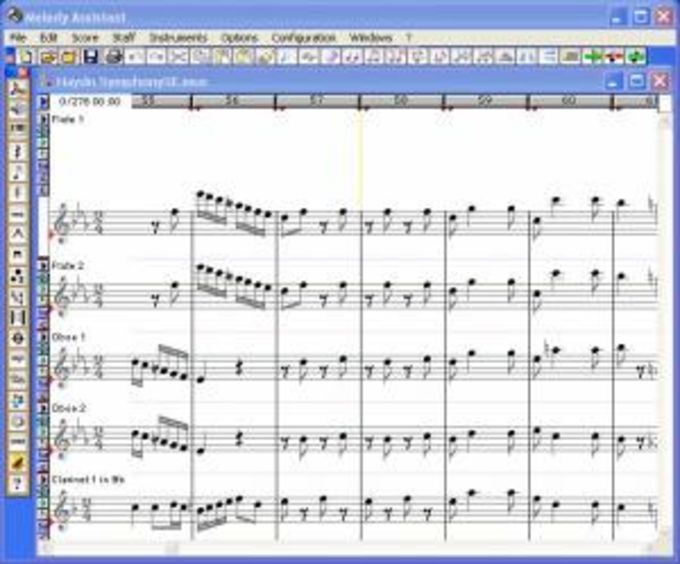
As I hadn’t been to a music college I knew virtually no musicians. The greatest challenge was getting my music played when I was young.

What have been the greatest challenges of your career so far? Peter said that the music of the whole world was tonal, so why we should we pay attention to a few central European composers who said tonality was no longer possible? From Australia I saw music in a new light. I visited many him many times in Australia and we collaborated on three film scores.

Other important influences were Michael Tippett, whom I also got to know and on whose music I wrote a short book – I liked his music even more than I liked Britten’s Nicholas Maw, who became a friend and an unofficial teacher – I thought him the best of the younger composers and the Australian composer Peter Sculthorpe, whom I met in England in 1974 and who became a close friend until his death in 2014.
#MELODY AND HARMONY ASSISTANT HOW TO#
He didn’t give composition lessons but I learned from him how to be a composer – see your later question, how do you work? As the greatest living composer in this country, he was probably the most important influence in my life. Donald suggested me, and I then worked part time for Britten for four years. I began working freelance for Faber Music and quite soon Britten needed someone to help him with editorial work. Deryck introduced me to a number of significant people in the musical world, among them Donald Mitchell, who had just founded Faber Music, mainly to publish Britten’s music. When I left university – where I read Classics as Music wasn’t possible as I hadn’t got music A level), I had the great good fortune to have got to know Deryck Cooke, who had made the performing version of Mahler’s Tenth Symphony and whom Colin and I later helped with a comprehensive revision. Many other composers too were influential, Sibelius and Stravinsky pre-eminently, as I spent all my spare time listening to music and studying scores. Meanwhile Mahler, all of whose works I’d got to know, became a huge influence, not just the music itself, but also what he stood for as a composer in Beethoven’s succession. Beethoven is still my favourite composer, the ideal of everything I believe in. What made me start to compose was hearing Beethoven’s Ninth Symphony for the first time, and thinking that this was the most wonderful music I’d ever heard and that I must write a symphony of my own – so I did, and spent the next two years writing one, and when I’d finished, writing another.

At that time I had given up piano lessons (I learned the piano between seven and thirteen) and attended a school where there was no music teacher, so composing was something I had to teach myself, or rather with the collaboration of my younger brother Colin, who also began to compose shortly after me. I didn’t begin to compose until I was sixteen. Who or what are the most significant influences on your musical life and career as a composer?


 0 kommentar(er)
0 kommentar(er)
